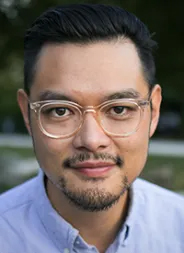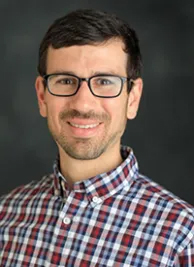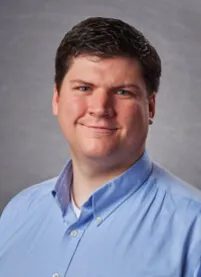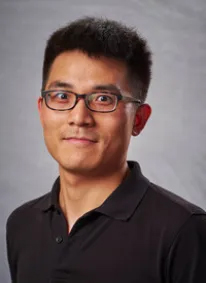Faculty researchers at the University of Tennessee, Knoxville, are redefining how to tackle big problems, and four of them have been awarded prestigious National Science Foundation CAREER awards for the 2022-23 submission period. The honor is NSF’s most esteemed award in support of early-career faculty who have the potential to become academic leaders in research and education.
UT recipients include a faculty member from the College of Arts and Sciences, two from the Tickle College of Engineering, and one from the College of Education, Health, and Human Sciences.
“These awards reflect the research excellence of UT faculty and recognize four early-career faculty members as being among our nation’s very best and brightest,” said Vice Chancellor for Research Deborah Crawford. “These four awardees will conduct cutting-edge research while dedicating themselves to the preparation of UT students for rich and rewarding lives and careers. Together, their work will make life and lives better throughout Tennessee and around the world.”
College of Arts and Sciences recipient
 Lawrence Lee, assistant professor in the Department of Physics and Astronomy, received an award for his project Searching for New Physics Phenomena and New Audiences. His research focuses on looking beyond the Standard Model of particle physics for new particles.
Lawrence Lee, assistant professor in the Department of Physics and Astronomy, received an award for his project Searching for New Physics Phenomena and New Audiences. His research focuses on looking beyond the Standard Model of particle physics for new particles.
“We usually assume that the particles leaving signals in our detector are those from the Standard Model,” said Lee. “Many theory models for physics beyond the Standard Model predict the existence of heavy new particles that can travel into the detector and have unexpectedly large interactions.”
College of Education, Health, and Human Sciences recipient
 Joshua Rosenberg, associate professor of STEM education science, received an award for Project CREDIBLE: Creatively Reimagining Engagements with Data in Biology Learning Environments. The project focuses on helping high school teachers teach data while students learn how to analyze data beyond a traditional classroom setting.
Joshua Rosenberg, associate professor of STEM education science, received an award for Project CREDIBLE: Creatively Reimagining Engagements with Data in Biology Learning Environments. The project focuses on helping high school teachers teach data while students learn how to analyze data beyond a traditional classroom setting.
“Being able to travel with teachers and students to the Great Smoky Mountains Institute at Tremont for teacher professional development and student overnight trips just makes me happy,” said Rosenberg. “I hope that this project positively impacts science teachers and students in terms of what takes place in their classrooms and in teachers’ and students’ personal lives.”
Tickle College of Engineering recipients
 Scott Ruoti, assistant professor of electrical engineering and computer science, received an award for his project Identifying, Quantifying, and Explaining Design Principles and User Practices that Enable Effective Long-term Key Management. It investigates how computer key management is used and identifies which designs best promote usability and security and which do not, including identifying needs for new designs.
Scott Ruoti, assistant professor of electrical engineering and computer science, received an award for his project Identifying, Quantifying, and Explaining Design Principles and User Practices that Enable Effective Long-term Key Management. It investigates how computer key management is used and identifies which designs best promote usability and security and which do not, including identifying needs for new designs.
“Cryptographic keys are a vital part of any secure system,” Ruoti said. “As long as the cryptographic keys used by a system remain secret, that system will be secure. While most systems in use today hide cryptographic keys from users, recently, security researchers have begun proposing exciting new systems that require users to be aware of cryptographic keys. For example, cryptocurrency — currency that exists only in digital form ― is stored in a digital wallet and exchanged using cryptographic keys. However, how to help users manage those keys has been an unsolved problem for about 30 years, making it difficult or impossible for the average person to adopt these exciting and revolutionary new systems.”
 Zhenbo Wang, assistant professor of mechanical, aerospace and biomedical engineering, was recognized for his project Reconfigurable Infrastructure and Scalable Execution for Advanced Air Mobility. Its goal is to develop sustainable, versatile and novel air transportation systems for the future.
Zhenbo Wang, assistant professor of mechanical, aerospace and biomedical engineering, was recognized for his project Reconfigurable Infrastructure and Scalable Execution for Advanced Air Mobility. Its goal is to develop sustainable, versatile and novel air transportation systems for the future.
“Now is the best time to integrate research and education activities to promote the emerging novel air mobility technologies,” said Wang. “I hope this project positively impacts both aerospace and transportation domains in terms of how novel infrastructure designs and new vehicle concept of operations enable more efficient transportation systems.”
—
CONTACT:
David Goddard, (865-974-8304, david.goddard@utk.edu)
